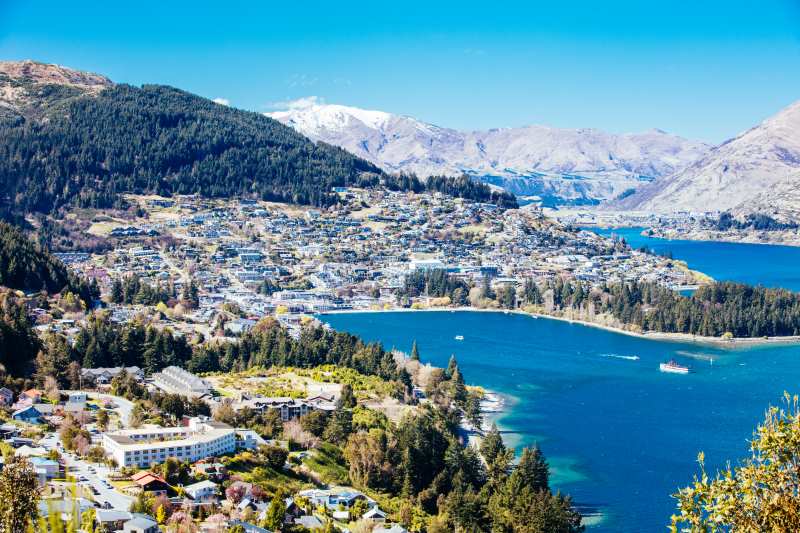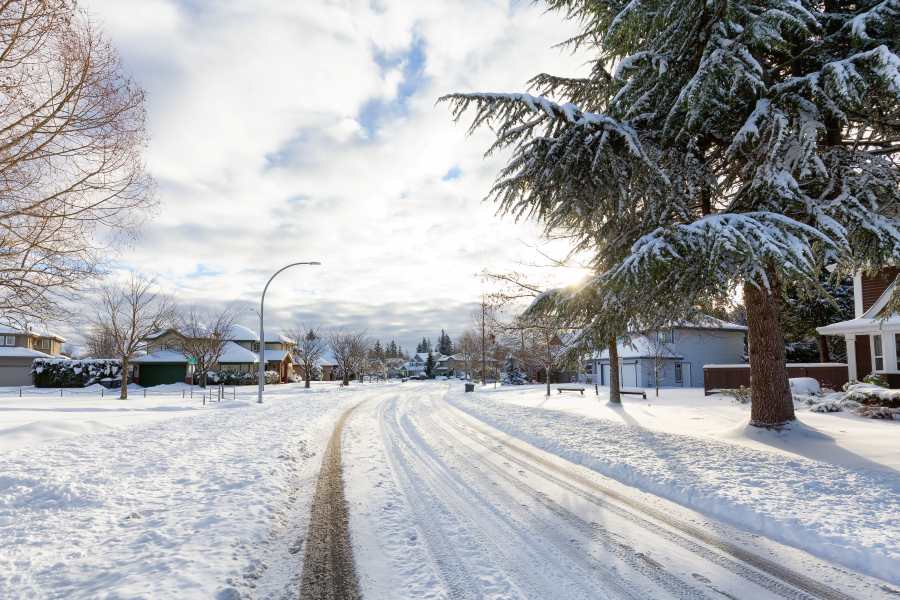
Premium Starting ₹395

24x7 Missed Call Facility



Travel Insurance
Trip Type
- Country
- Geography

Premium Starting ₹395

24x7 Missed Call Facility


Best Time to Visit New Zealand from India

The best time to visit New Zealand is during summer (December to February). New Zealand, the country which hosts people for celebrations throughout the year, is the land of heartening Māori Culture and of landscapes you must have seen as a cover on your notebooks. It has something to offer whenever you visit this land which is full of artistic landscapes. You can experience world-class festivals and celebrations such as Art-Deco, WOMAD, and Rhythm and Vines.
Explore the beauty of New Zealand in any season and make the most of your trip. Enjoy the lush landscapes and the outdoor adventure sports to feel lively and energised. Read this article to get details about the best time to visit New Zealand.

Table of Contents

Best Months/Seasons to Visit New Zealand
Knowing the best month to visit New Zealand will make your trip planning easier. Follow the list discussed below to see what suits you:
| Month | Average Temperature | Description |
| September-November (Spring Season) | 4.5 to 18 degrees Celsius | Spring in New Zealand brings a burst of vibrant life and natural beauty across the islands. Enjoy various food and music festivals while you’re there. Popular events during this time: Newmarket Festival, Taste of Auckland, and Highwic’s Sweet Pea Festival. |
| December-February (Summer Season) | 20 to 25 degrees Celsius | The best time to visit New Zealand is the summer season. When the rest of the world experiences cold weather, New Zealanders experience pleasant, sunny weather with the least rainfall. Popular events during this time: Rhythm and Alps, World Buskers Festival, and Rhythm and Vines. |
| March-May (Autumn Season) | 7 to 21 degrees Celsius | Autumn brings mild temperatures across the country, making outdoor activities comfortable and enjoyable. It is harvest season in New Zealand, showcasing the abundance of fresh produce and local delicacies. Popular events during this time: WOMAD, Hokitika Wildfoods Festival, and Earth Beat Festival in Auckland. |
| June-August (Winter Season) | 10 to 16 degrees Celsius | The Southern Alps, Queenstown, Wanaka, and Mount Cook are blanketed in snow, creating perfect conditions for skiing, snowboarding, and snowshoeing. Popular events during this time: Matariki, Queenstown Winter Festival, and Dunedin Cadbury Chocolate Carnival. |
September-November (Spring Season)
Springtime in New Zealand heralds new life. The Alpine meadows burst with wildflowers, creating a dramatic landscape and a colourful tapestry, and the snow in the Southern Alps melts. Outdoor activities are a must during spring.
Here are some of the key details you should know about this season when planning for a trip to New Zealand:
| Weather | Mild, occasional rainshower |
| Temperature | 4.5°C to 18°C |
| Season | Moderate to Peak |
| Season for Localities | Newmarket Festival, Taste of Auckland, Highwic’s Sweet Pea Festival |
| Key Highlights |
|
December-February (Summer Season)
Summer season in New Zealand is a time to embrace the great outdoors, celebrate cultural diversity, and immerse oneself in the natural beauty and relaxed Kiwi way of life.
Here are some of the key details you should know about this season when planning for a trip to New Zealand:
| Weather | Warm and sunny |
| Temperature | 20°C to 25°C |
| Season | Peak |
| Season for Localities | Rhythm and Alps, World Buskers Festival, Rhythm and Vines |
| Key Highlights |
|
March-May (Autumn Season)
New Zealand’s landscapes become a stunning tapestry of red, gold, and amber hues. Autumn in New Zealand invites cosy moments by the fireplace, indulging in hearty meals and relaxing in boutique lodges or quaint bed-and-breakfasts.
Here are some of the key details you should know about this season when planning for a trip to New Zealand:
| Weather | Mild |
| Temperature | 7°C to 21°C |
| Season | Moderate |
| Season for Localities | WOMAD, Hokitika Wildfoods Festival, Earth Beat Festival in Auckland |
Key Highlights |
|
June-August (Winter Season)
Winter in New Zealand spans from June to August and offers a unique experience with stunning snowy landscapes, diverse winter sports, cosy cultural events, and opportunities to indulge in local cuisine.
Here are some of the key details you should know about this season when planning for a trip to New Zealand:
| Weather | Cold and rainy/snowy |
| Temperature | 10°C to 16°C |
| Season | Off |
| Season for Localities | Matariki, Queenstown Winter Festival, Dunedin Cadbury Chocolate Carnival |
| Key Highlights |
|
When to Avoid Visiting New Zealand?

New Zealand is a beautiful country all year round. However, there is a certain season when tourists avoid travelling to New Zealand.
| Months to Avoid | Reason |
| June-August (Winter Season) |
|
Seasonal Travel Costs of Visiting New Zealand from India
Travelling to Cambodia from India can vary in affordability depending on the time of year. Here's a general overview of how costs for flights and hotels can differ across different months or seasons:
| Season | Average Flight Cost | Average Hotel Cost per Night | Description |
| Spring (September-November) | ₹59,000 - ₹69,000 | ₹6,000 - ₹8,000 | Moderate to high prices; the season experiences heavy rain and humidity. Tourists can go to experience the lush greenery. |
| Summer (December-February) | ₹75,000 - ₹82,000 | ₹8,000 - ₹10,000 | Peak prices due to the pleasant summer weather. You can go sightseeing in the lush landscape of New Zealand. |
| Autumn (March-May) | ₹53,000 - ₹70,000 | ₹5,000 - ₹7,000 | Moderate prices; mild temperatures, harvest season with many outdoor activities. |
| Winter (June-August) | ₹44,000 - ₹55,000 | ₹4,000 - ₹6,000 | Off-season with the lowest prices due to the cold and rain/snow in the country. |
Things to Know Before Visiting New Zealand
Now that you know the best times to visit New Zealand and the seasons to avoid, consider going through the following pointers before you book your New Zealand tour package.
- Natives have a very different accent, which can sometimes confuse travellers. Learn some basic accent rules, such as "i" sounds more like "uh", and "e" sounds like an "i".
- It is okay to roam around barefoot in New Zealand.
- You should always be prepared for any type of weather during a single day while in New Zealand.
- The ozone layer is much thinner in New Zealand when compared to other countries. So, even if you feel like the sun is not hot enough, you should take necessary precautions to protect yourself from those harmful UV radiations.
- New Zealand is known as the Shaky Isles, and that is for a reason. This country tends to experience a lot of volcanic and tectonic activities.
- Make sure you visit the clearest lake in the world, the Blue Lake. It has been declared so by New Zealand’s National Institute of Water and Atmospheric Research.
- Filmmakers for Avatar, Lord of the Rings, Chronicles of Narnia and many more fantasy movies just couldn't resist choosing New Zealand for their films over and over. So, it will not be surprising if you feel like you have seen this place somewhere on TV once every few miles.
- Kiwis are not a native to New Zealand. It has its origin in China and was primarily known as Chinese Gooseberries. However, it was the Americans who made New Zealand famous for kiwis.
Tips for Travelling in New Zealand
Here are a few tips that will ensure a safe and enriching experience for you in New Zealand:
- Make sure you are up to date with the latest travel guidelines, especially if you are visiting for the first time after Covid-19.
- Check what you can carry and get rid of before you visit New Zealand, as this country has strict declaration guidelines to protect its ecosystem.
- Get accustomed to i-SITE. Every city in New Zealand has their own i-SITE, which includes all the brochures, maps and necessary details about the place you are going to visit.
- Consider booking in advance if you are travelling in the summer, spring and autumn seasons.
- Since most flights land in Auckland, tourists primarily travel from South to North. But you can take a detour and travel from Queenstown or Christchurch way back to the north to avoid the crowd.
- Pack your bags considering all kinds of seasons as you might get to experience all four in one day.
- The only types of IDs that are accepted in New Zealand are your passport, a New Zealand Driving Licence and the Hospitality New Zealand 18+ card. If you want to keep your passport in a locker, you might consider getting an 18+ card for local purposes.
- If you are making your payments in cash, make sure to know how the system of Swedish rounding works. It is a cash rounding method which is prevalent in NZ. For card payments, New Zealanders use EFTPOS.
- Be aware of the road rules in New Zealand.
- Stay safe from the sand-fly bites.
What Phrases Should You Know Before Travelling to New Zealand?
English is spoken widely all over New Zealand, but there are some local phrases and words that might confuse travellers. To make your travel experience easier and more fun, look at this list of phrases you should know before travelling to New Zealand:
| Common Phrases | Local Phrases |
| Well, there it is, or there you have it | Bob's your uncle |
| Cooler or insulated portable bin | Chillybin |
| Resident of West Coast, South Island | Coaster |
| Quite sick or ill | Crook |
| A corner shop | Dairy |
| Comedian or joker | Dag |
| Electronic Fund Transfer at the Point of Sale | EFTPOS |
| Hooligans, usually referred to one's driving style | Hoon |
| just another friggin Aucklander | JAFA |
| No problem/thank you/no worries/ | Sweet as |
| Really tired | Knackered |
| “whatever is wrong will right itself with time” | She’ll be alright |
| throwing a tantrum | Pack a sad |
| It was easy | Piece of piss |
| I am pretty | I am pretty chocka |
| Idiot | Muppet |
| Broken/ wasted | Munted |
| In the middle of nowhere | Wop Wops |
| Yes, but I don’t agree | Yeah Nah |
| Is everything okay? | You right? |
| Extremely Happy | Stoked |
| Don’t worry about it | No sweat |
| He is funny | He’s a hard case |
| That’s disgusting | That’s grotty |
Now that you know the best time to visit New Zealand, the travel guidelines and restrictions, don’t wait and get your tickets booked. But before that, you should consider getting travel insurance. Travel insurance will provide you with financial coverage for loss of your luggage and passport, flight cancellation and medical emergencies.













